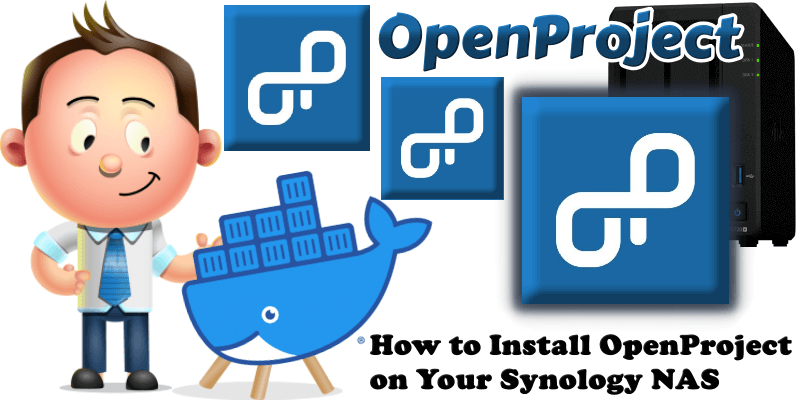
OpenProject is a web-based project management system for location-independent team collaboration. This free open-source application is released under the GNU General Public License Version 3 and is available as a community edition and a chargeable Enterprise Edition. In this step by step guide I will show you how to install OpenProject Community Edition on your Synology NAS using Docker.
STEP 1
Please Support My work by Making a Donation.
STEP 2
Install Container Manager via Synology “Package Center”. If you run an older DSM version (under 7.2), search for Docker instead of Container Manager.
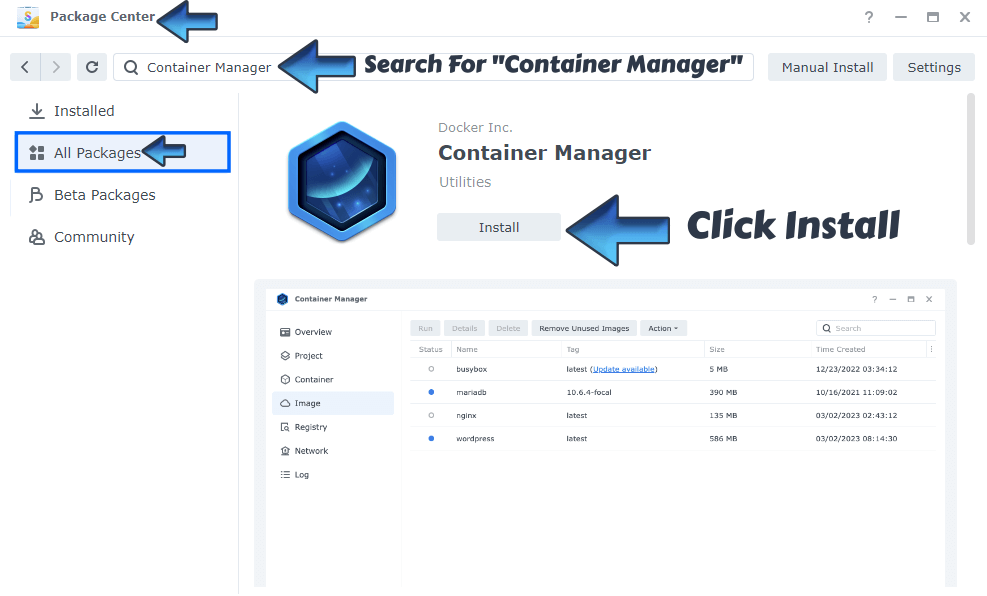
STEP 3
Make sure you have a synology.me Wildcard Certificate. Follow my guide to get a Wildcard Certificate. If you already have a synology.me Wildcard certificate, skip this STEP.
STEP 4
Go to Control Panel / Login Portal / Advanced Tab / click Reverse Proxy. Follow the instructions in the image below.
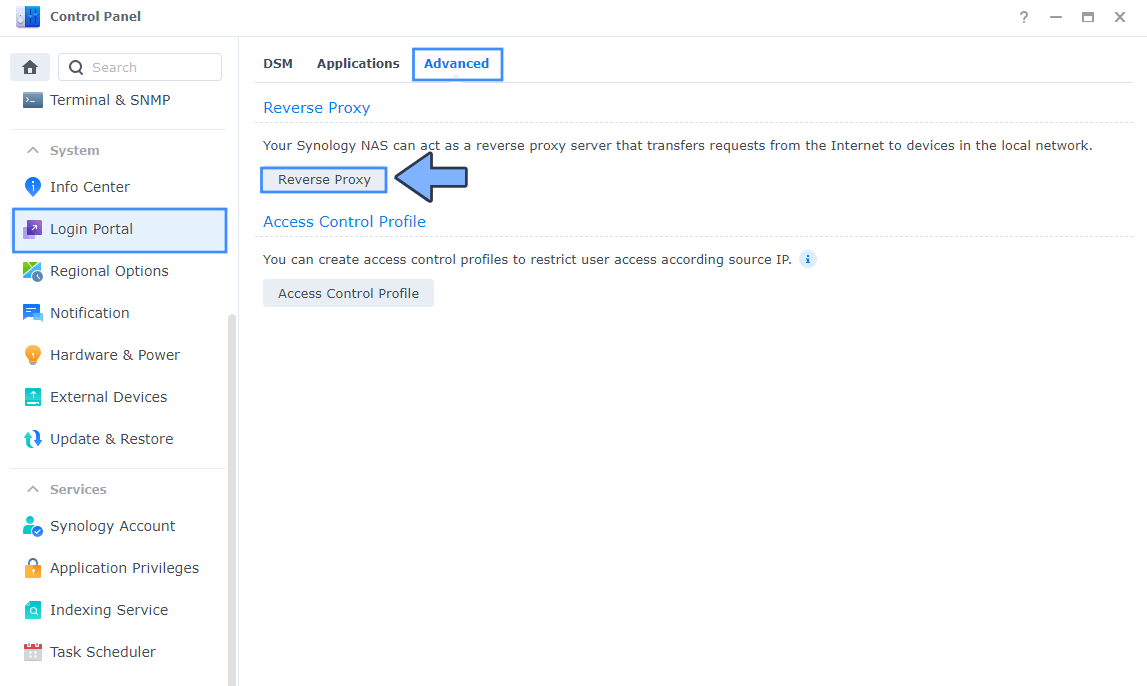
STEP 5
Now click the “Create” button. Follow the instructions in the image below.
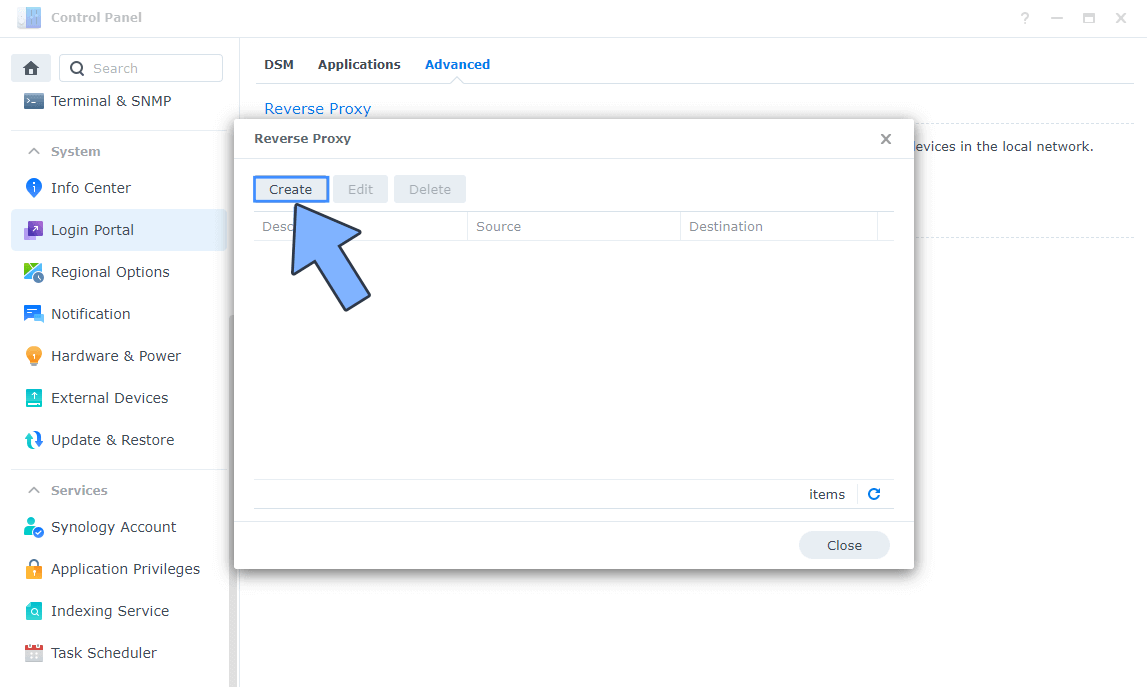
STEP 6
After you click the Create button, the window below will open. Follow the instructions in the image below.
On the General area, set the Reverse Proxy Name description: type in OpenProject. After that, add the following instructions:
Source:
Protocol: HTTPS
Hostname: openproject.yourname.synology.me
Port: 443
Check Enable HSTS
Destination:
Protocol: HTTP
Hostname: localhost
Port: 5122
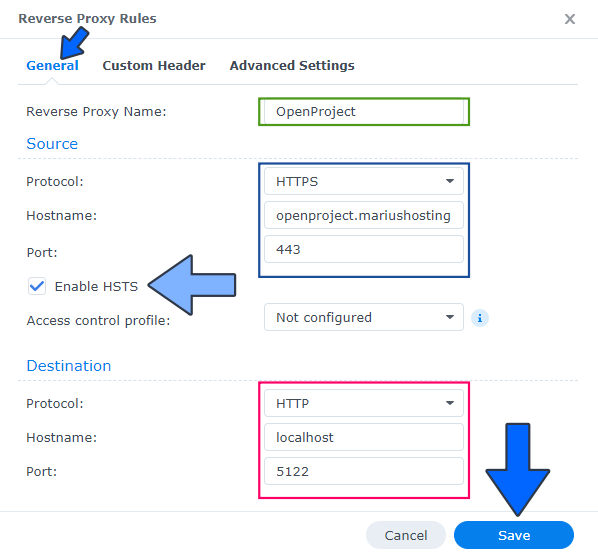
STEP 7
On the Reverse Proxy Rules click the Custom Header tab. Click Create and then, from the drop-down menu, click WebSocket. After you click on WebSocket, two Header Names and two Values will be automatically added. Click Save. Follow the instructions in the image below.

STEP 8
Go to Control Panel / Network / Connectivity / Check Enable HTTP/2 then click Apply. Follow the instructions in the image below.
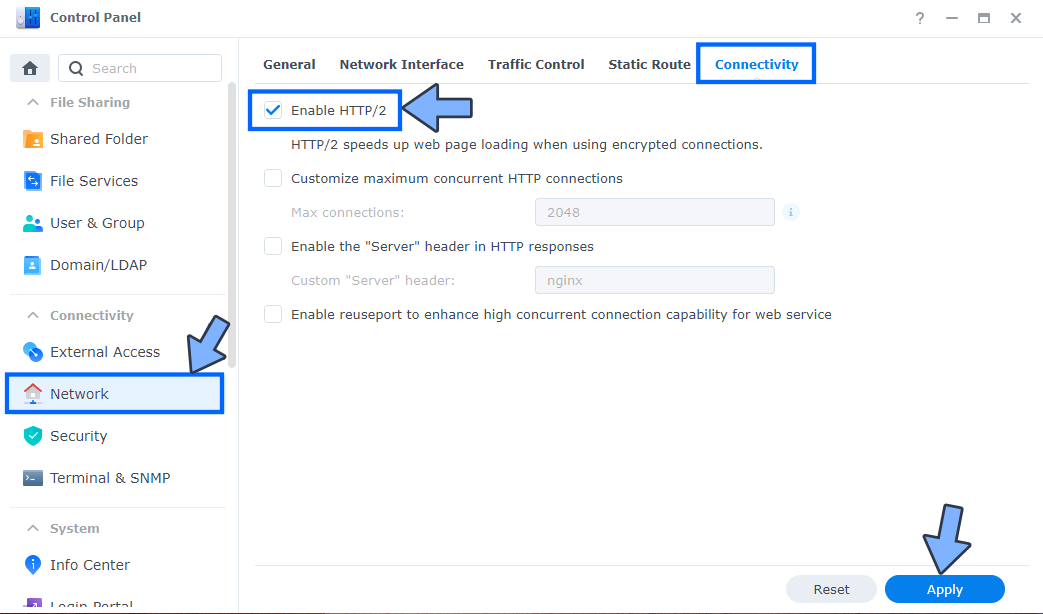
STEP 9
Go to Control Panel / Security / Advanced tab/ Check Enable HTTP Compression then click Apply. Follow the instructions in the image below.
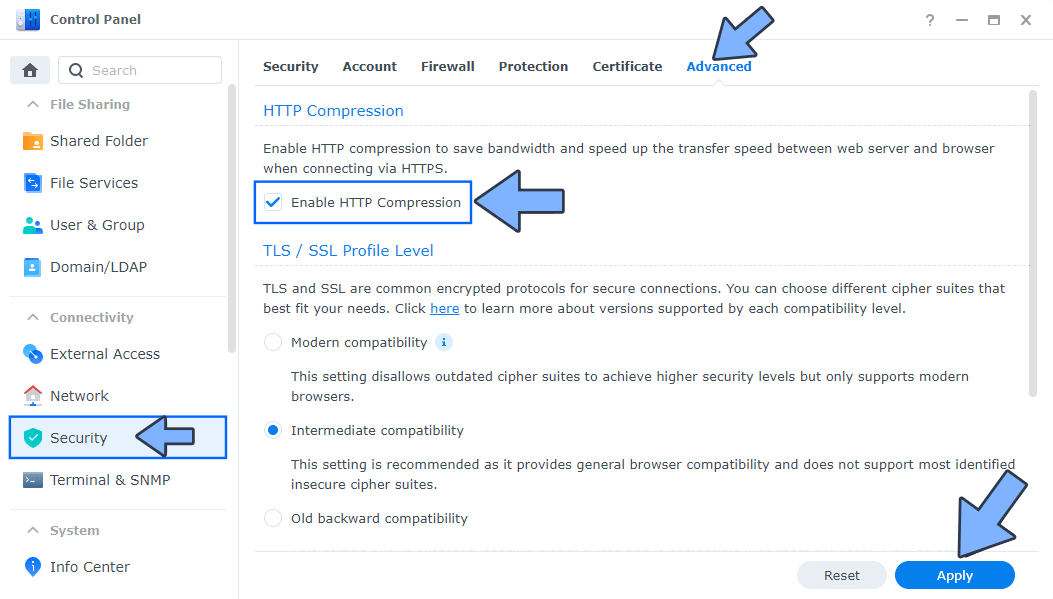
STEP 10
Go to File Station and open the docker folder. Inside the docker folder, create one new folder and name it openproject. Follow the instructions in the image below.
Note: Be careful to enter only lowercase, not uppercase letters.
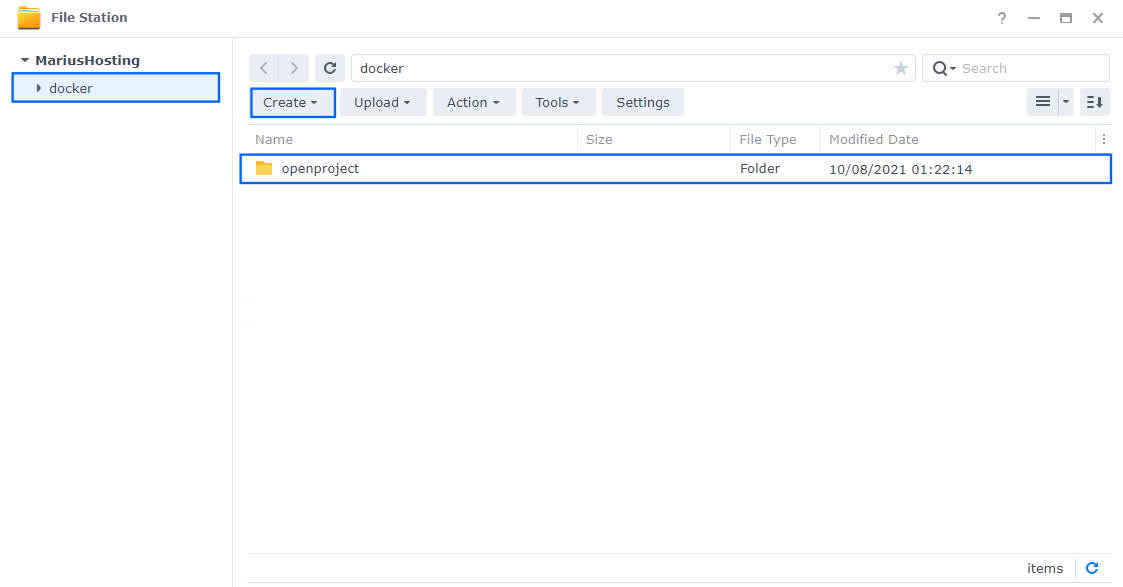
STEP 11
Now create two new folders inside the openproject folder that you created at STEP 10 name one “assets” and the other “pgdata“. Follow the instructions in the image below.
Note: Be careful enter only lowercase, not uppercase letters.
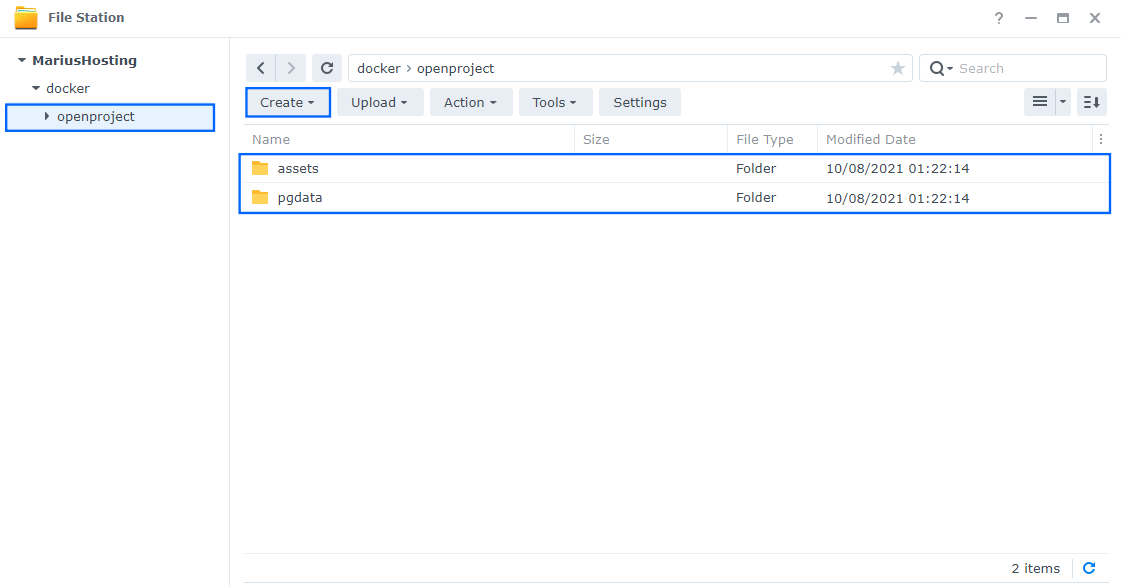
STEP 12
Go to Control Panel / Task Scheduler / Create / Scheduled Task / User-defined script. Follow the instructions in the image below.
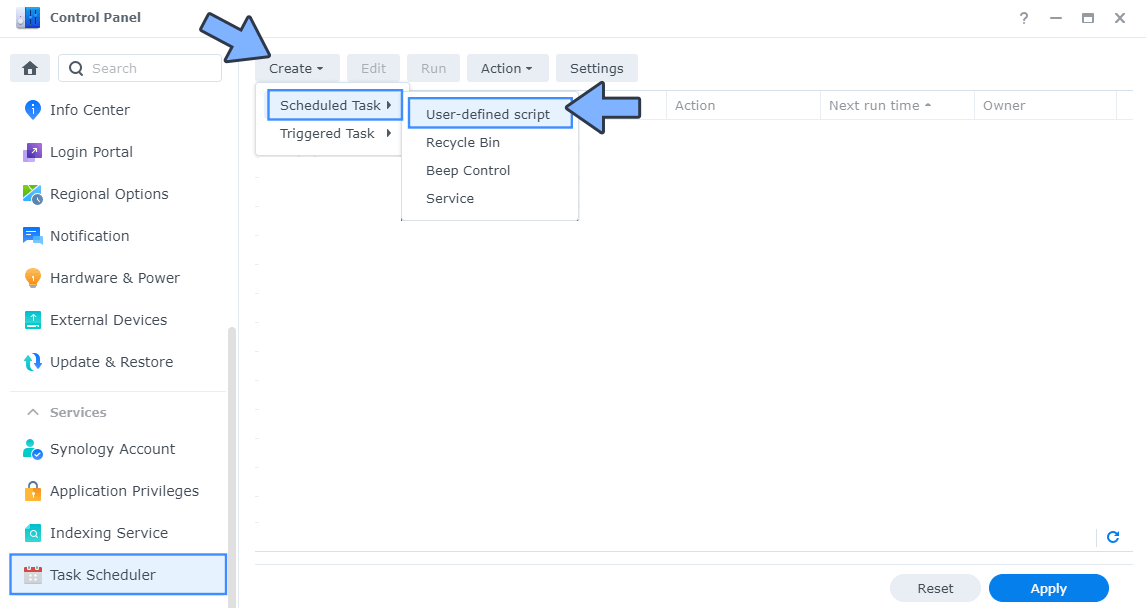
STEP 13
Once you click on User-defined script, a new window will open. Follow the instructions below:
- General: In the Task field type in Install OpenProject. Uncheck the “Enabled” option. Select root User.
- Schedule: Select Run on the following date then select “Do not repeat“.
- Task Settings: Check “Send run details by email“, add your email then copy paste the code below in the Run command area. After that, click OK.
docker run -d --name openproject \ -p 5122:80 \ -e SERVER_HOSTNAME=openproject.yourname.synology.me \ -e SECRET_KEY_BASE=MariushostingMariushostingMari13 \ -e OPENPROJECT_EDITION="bim" \ -v /volume1/docker/openproject/pgdata:/var/openproject/pgdata \ -v /volume1/docker/openproject/assets:/var/openproject/assets \ openproject/openproject:16
Note: Before you paste the code above in the Run command area, change the value for SERVER_HOSTNAME and add your own synology.me DDNS that you have previously created at STEP 6.
Note: Before you paste the code above in the Run command area, change the value for SECRET_KEY_BASE and add your own Secret Key Base. MariushostingMariushostingMari13 is an example for a Secret Key Base value. You should invent your own Value. Add 32 random characters, both letters and numbers.
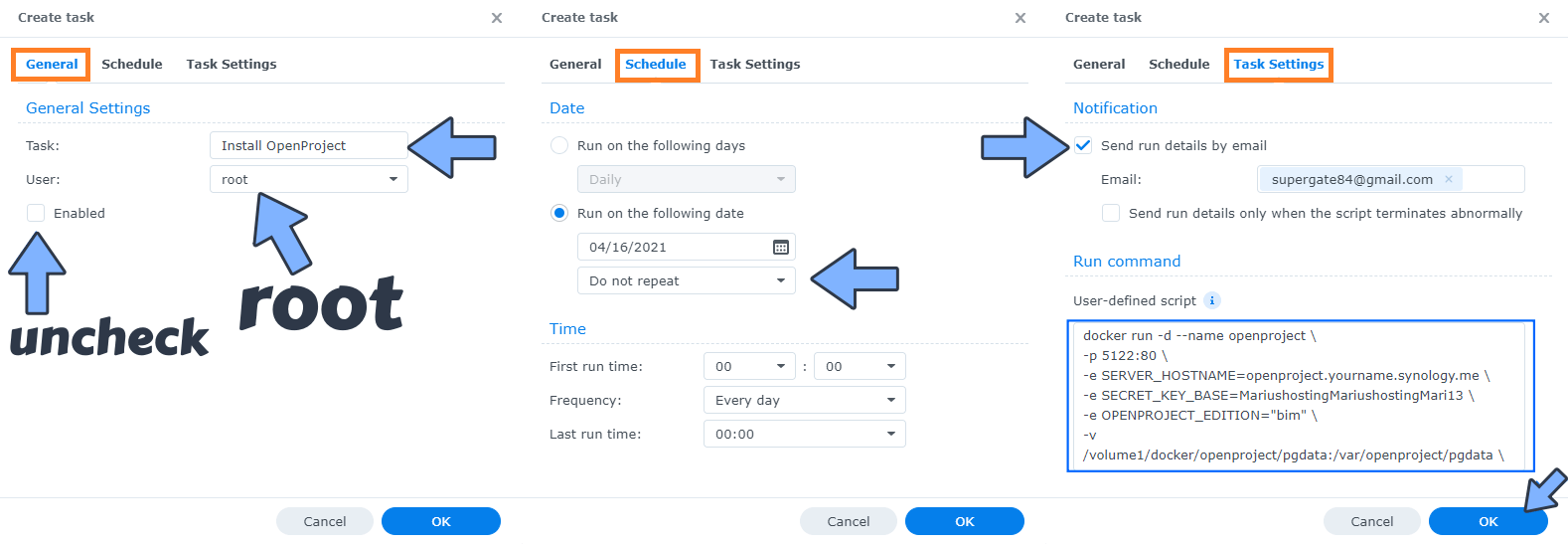
STEP 14
After you click OK on STEP 13 a new warning pop up window will open. Click OK.
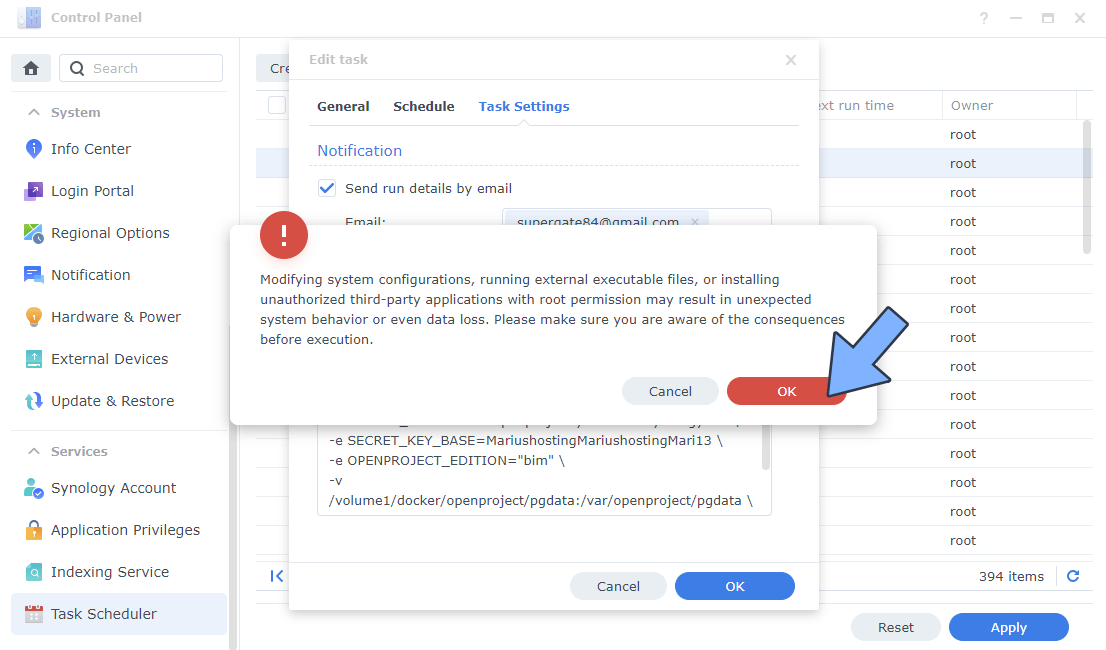
After you click OK, type in your DSM Password then click Submit. Follow the instructions in the image below.
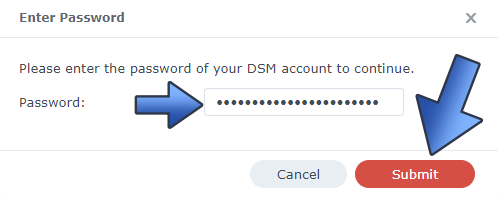
STEP 15
After you click Submit on STEP 14, select your “Install OpenProject” Task then click the “Run” tab. You will be asked to run Install OpenProject – click OK. Follow the instructions in the image below.
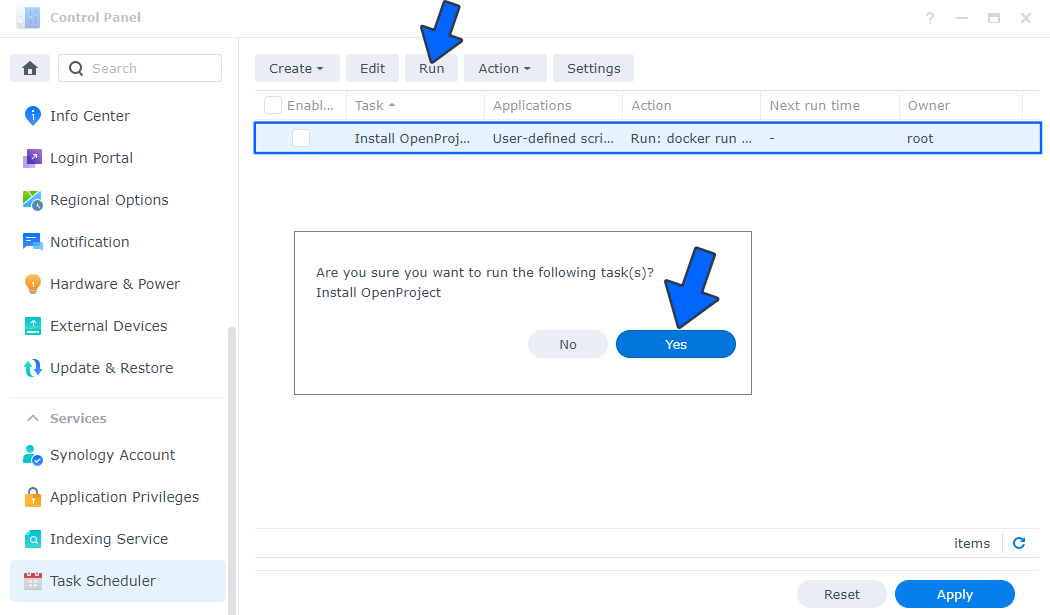
STEP 16
🟢Please Support My work by Making a Donation. Almost 99,9% of the people that install something using my guides forget to support my work, or just ignore STEP 1. I’ve been very honest about this aspect of my work since the beginning: I don’t run any ADS, I don’t require subscriptions, paid or otherwise, I don’t collect IPs, emails, and I don’t have any referral links from Amazon or other merchants. I also don’t have any POP-UPs or COOKIES. I have repeatedly been told over the years how much I have contributed to the community. It’s something I love doing and have been honest about my passion since the beginning. But I also Need The Community to Support me Back to be able to continue doing this work.
STEP 17
Please wait approximately 10 minutes for the installation to be completed or you will get a blank 503 error page if you try to connect too soon. Now open your browser and type in your HTTPS/SSL certificate like this https://openproject.yourname.synology.me In my case it’s https://openproject.mariushosting.synology.me Add admin as Username and admin as Password then click Sign in. Follow the instructions in the image below.
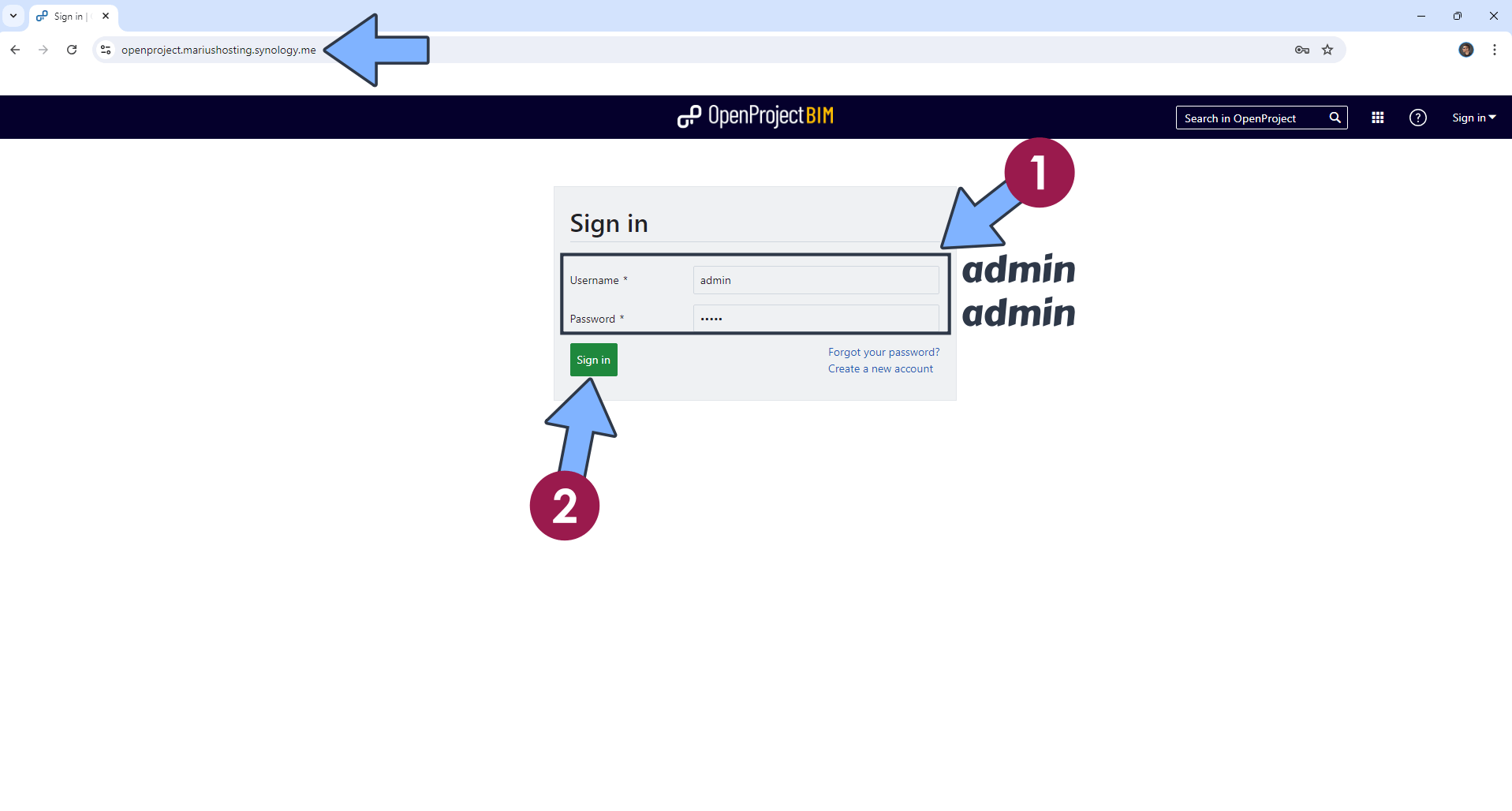
STEP 18
After you click Sign in at STEP 17, you will be prompted to change the password. Add the current admin password then your new password. Click Save. Follow the instructions in the image below.
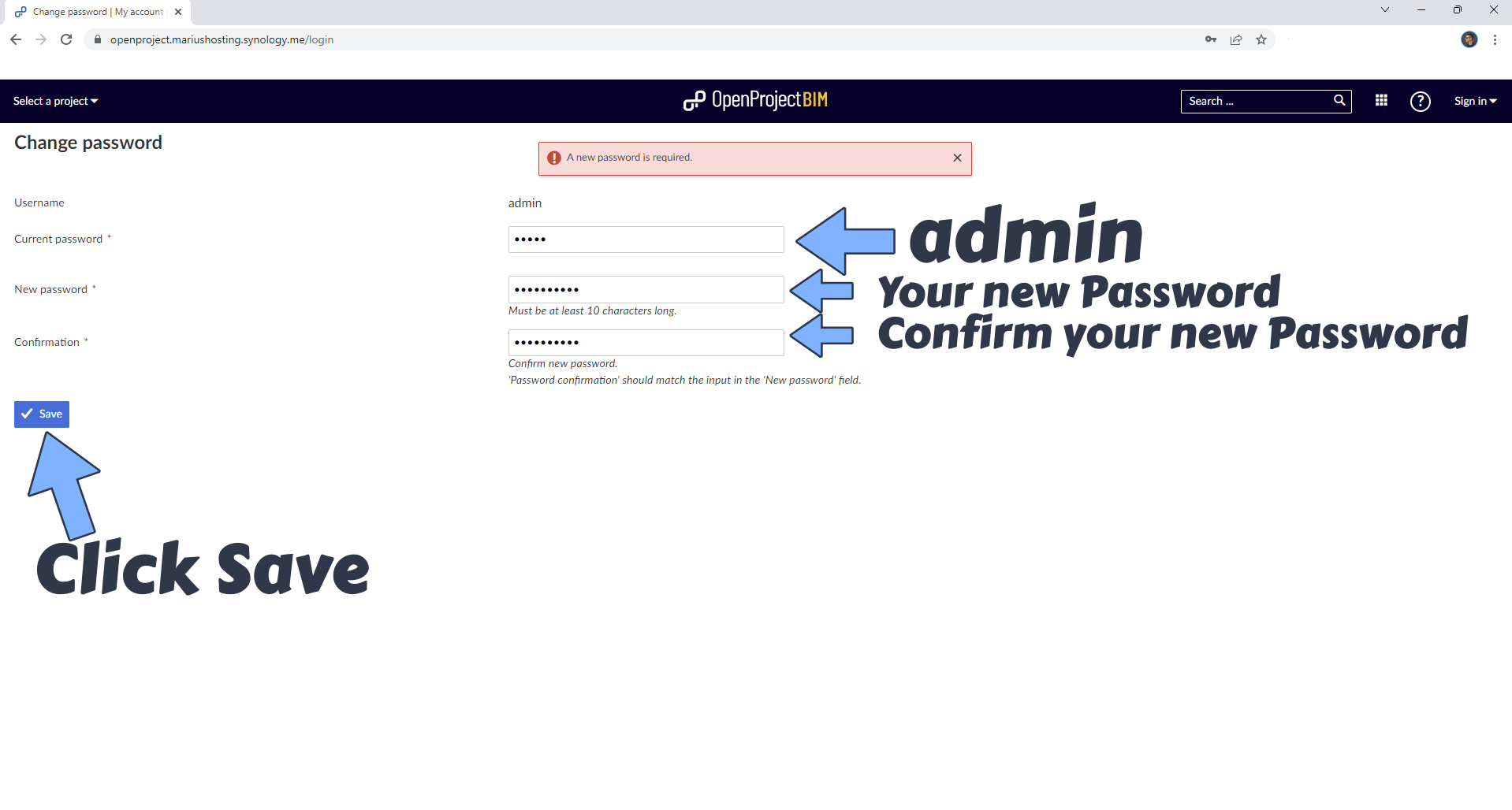
STEP 19
You will be prompted to select your language. Click Save. Follow the instructions in the image below.
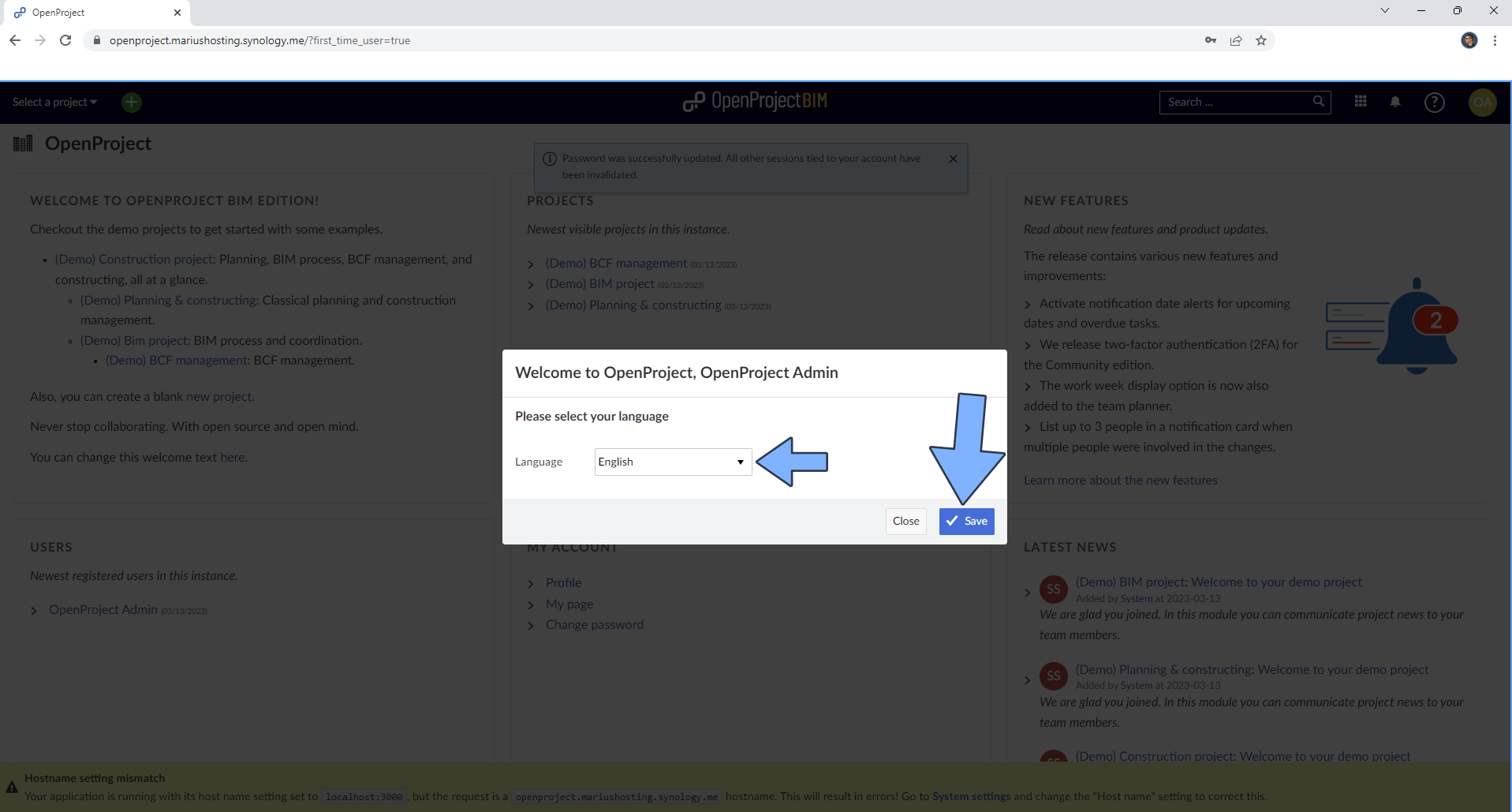
STEP 20
At the bottom of the page you will see a yellow warning message. Click on the System settings link. Follow the instructions in the image below.
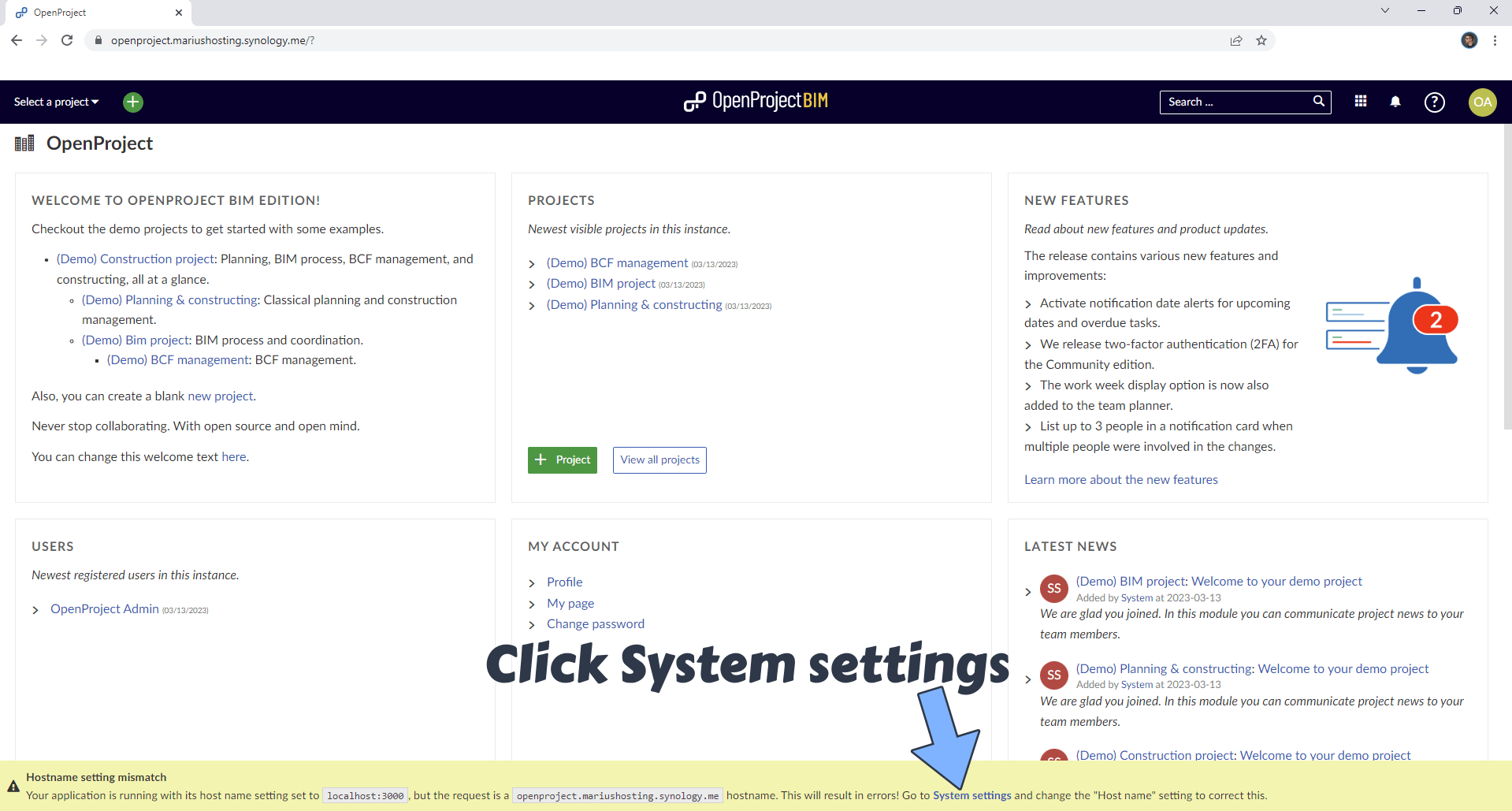
STEP 21
In the Host name area type in your own Synology DDNS that you have previously created at STEP 6. Follow the instructions in the image below.
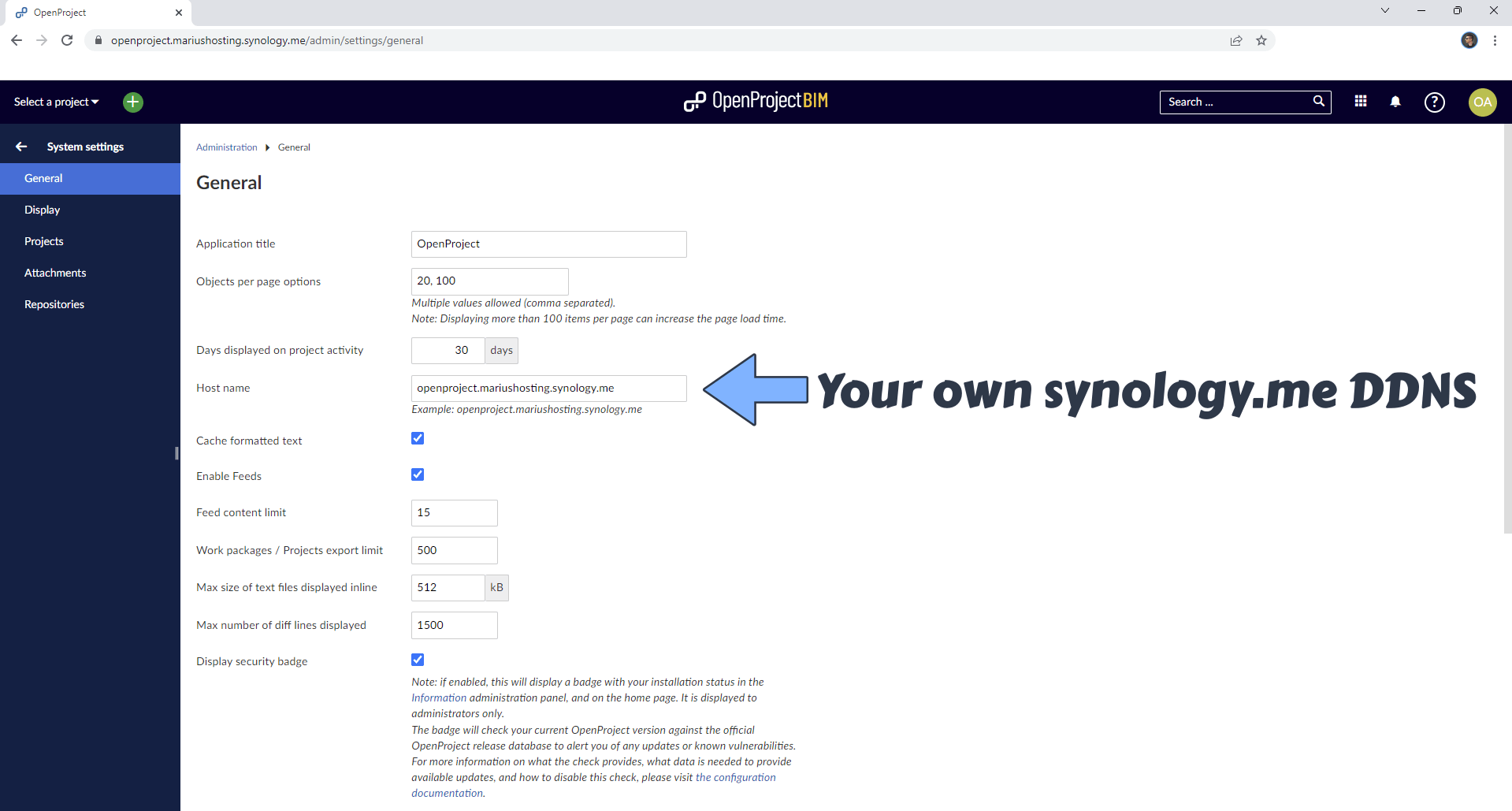
STEP 22
Scroll down on the page and uncheck the “Display welcome block on homescreen” option. Click Save. Follow the instructions in the image below.
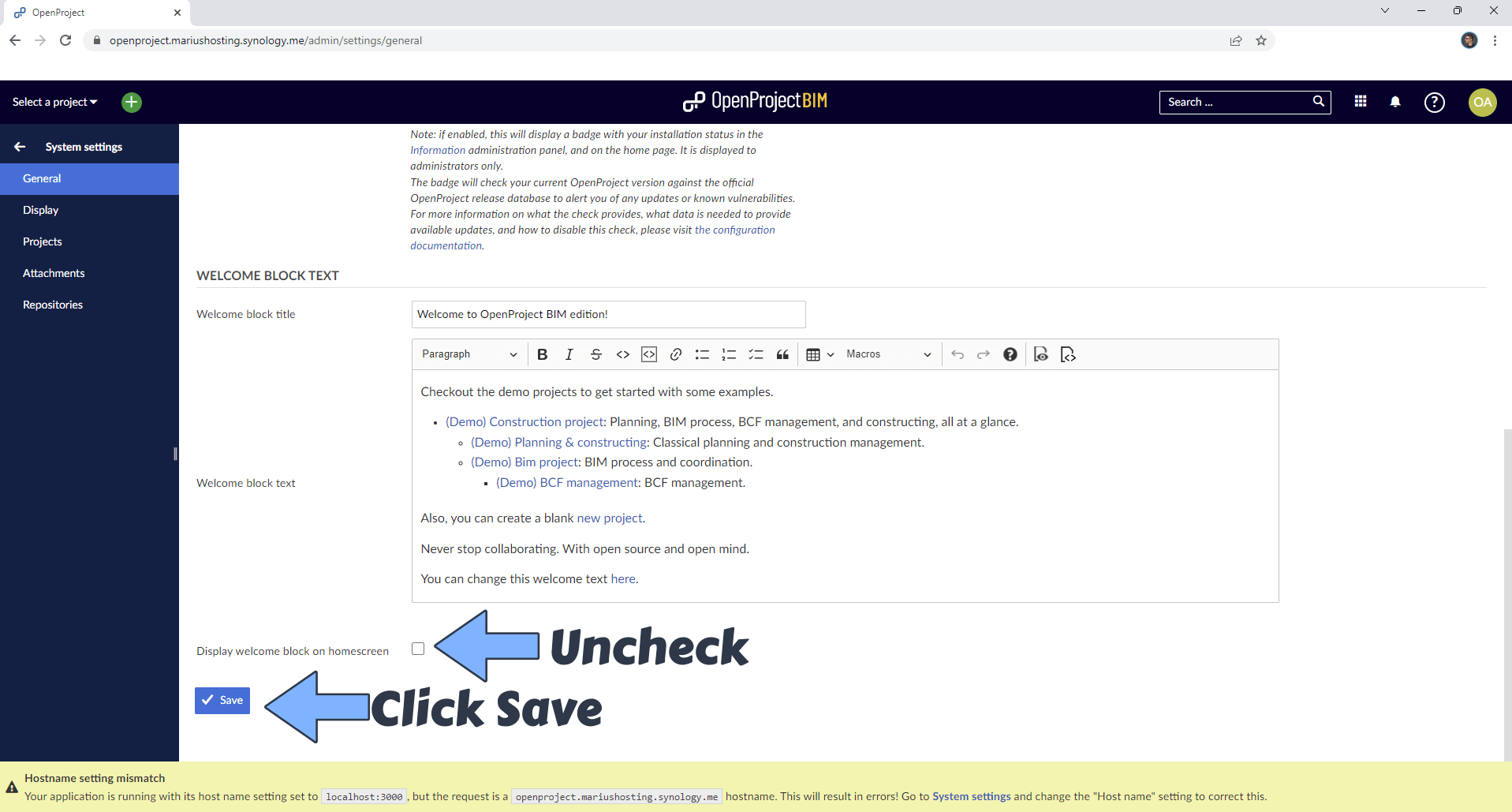
STEP 23
If everything goes right, you will see the following message at the top right of your screen: “Successful update“.
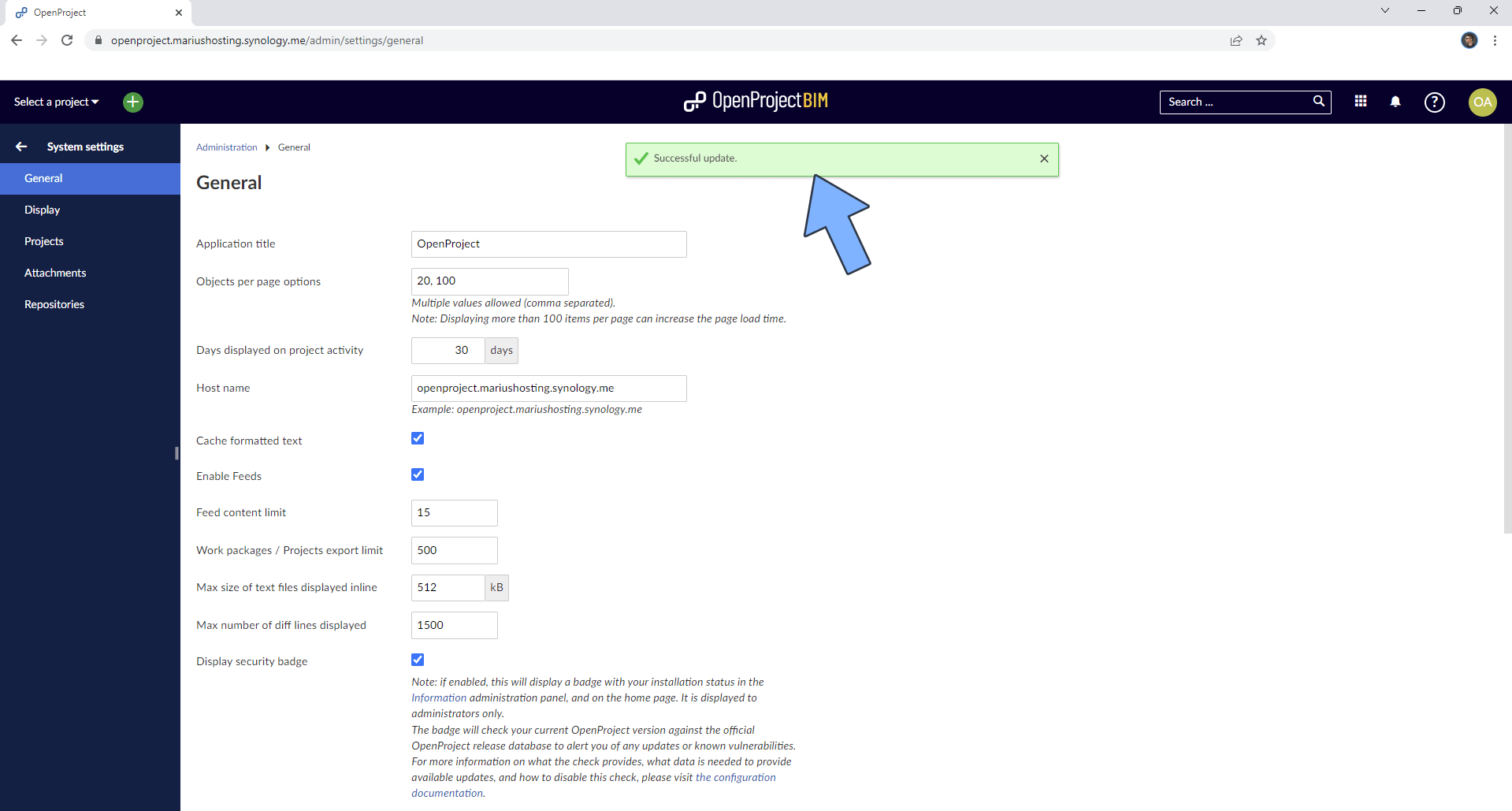
STEP 24
Your OpenProject Dashboard at a glance!
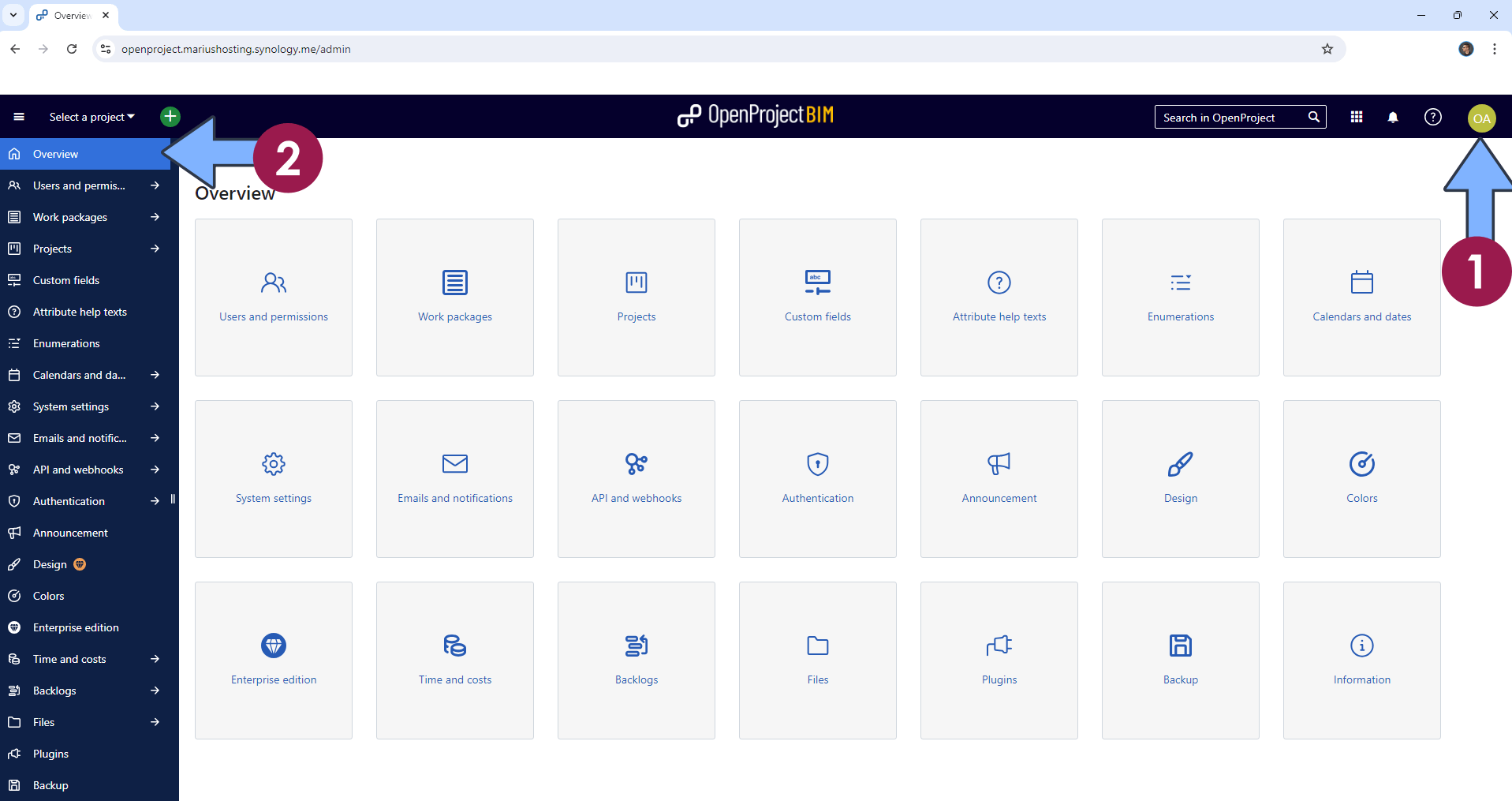
STEP 25
Set Up Email Notifications in OpenProject.
Enjoy OpenProject!
If you encounter issues by using this container, make sure to check out the Common Docker issues article.
⚠️Warning: This container require a NAS with AVX support. Check out the Common Docker issues article above.
Note: Can I run Docker on my Synology NAS? See the supported models.
Note: How to Back Up Docker Containers on your Synology NAS.
Note: Find out how to update the OpenProject container with the latest image.
Note: How to Free Disk Space on Your NAS if You Run Docker.
Note: How to Schedule Start & Stop For Docker Containers.
Note: How to Activate Email Notifications.
Note: How to Add Access Control Profile on Your NAS.
Note: How to Change Docker Containers Restart Policy.
Note: How to Use Docker Containers With VPN.
Note: Convert Docker Run Into Docker Compose.
Note: How to Clean Docker.
Note: How to Clean Docker Automatically.
Note: Best Practices When Using Docker and DDNS.
Note: Some Docker Containers Need WebSocket.
Note: Find out the Best NAS Models For Docker.
Note: Activate Gmail SMTP For Docker Containers.
This post was updated on Monday / June 30th, 2025 at 1:33 PM
